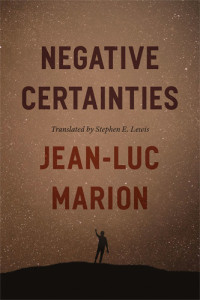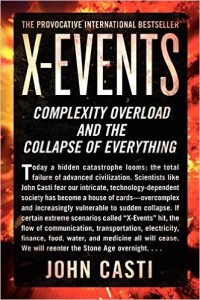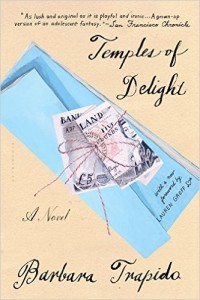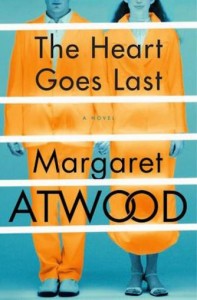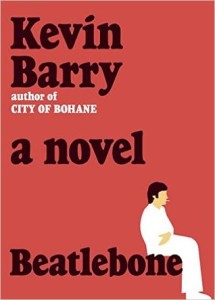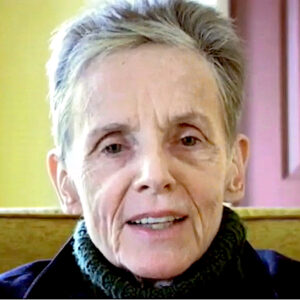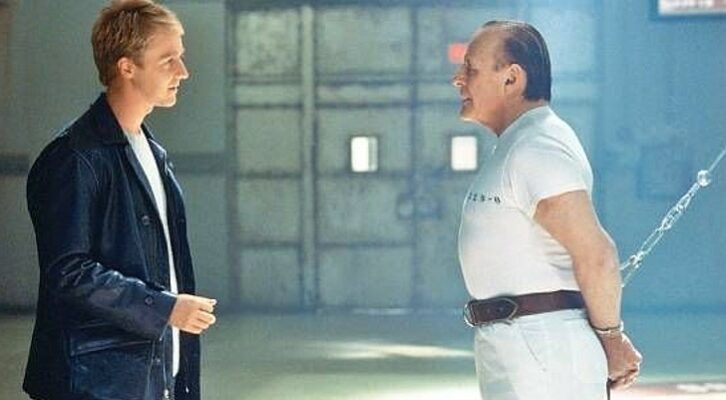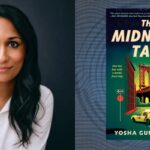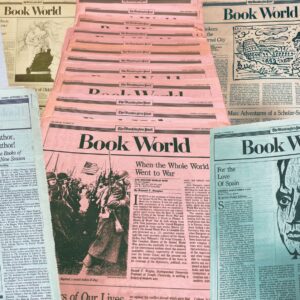
Interview with a Bookstore: Penn Book Center
A Resource for Penn Students & Philadelphians Since 1962
The Penn Book Center opened in 1962, one of two bookstores opened at the same time by the Nickles brothers, Peter and Achilles (faculty at the University of Pennsylvania relished ordering books from a man named Achilles). Achilles, also a Penn grad, had owned a bookstore in Iowa City where he attended the Iowa Writers’ Workshop, and when he closed that to move back East, he and Peter felt that an academically oriented store on the University of Pennsylvania Campus would be a profitable venture and opened the Penn Book Center.
What's your favorite section of the store?
Ashley Montague (owner): I have two favorite sections—fiction and children’s literature. Fiction because that is my true love when it comes to books. children’s literature because I still find children’s books magical.
Ash Acevedo (bookseller): My default would have to be the Science Fiction section, but I also really like the center table because it’s a lot of different genres all together. They’re big and flashy and they’re the most tempting, and it’s always a very interesting selection—The Sphinx that Traveled Philadelphia, A Geek in Thailand, Star Trek Pop-Ups.

If you had infinite space what would you add?
Ashley: If we had infinite space I would expand our children’s section because picture books need to be faced out to be truly appreciated. I would also add a used book section because so many people ask us for it, and it would allow us to carry some out-of-print titles.
Ash: I would add Urban Fiction because a lot of people ask about it, but we don’t have the space for the demand. I would also like to have a huge Manga section.
What do you do better than any other bookstore?
Ashley: Being so small, we’re very nimble. Since so much of our business is selling books for Penn classes, we’ve become very adept at ordering books from all over the world—the Swedish textbook from Stockholm, Portuguese texts from Brazil, Hebrew poetry from Jerusalem, etc
Who's your favorite regular?
Ashley: We have so many wonderful regulars; I’m grateful for all of them. There is a crew of regulars from the Penn Library, and it’s great to chat with people who are working intimately with books, as we are. We have a number of elderly regulars, and we like them because they have more time to browse and talk about books. One gentleman, for instance, comes in once a month when he receives his Social Security check. He is such an erudite man; I gather he’s lived all over the world and has us ordering books in many different languages. We have a nice crew of graduate students, mostly in the humanities, who buy lots of poetry and philosophy; one especially kind graduate student brings us gifts of exotic chocolate, which we really appreciate.

What’s the craziest situation you’ve ever had to deal with in the store?
Ashley: Most of our customers are pretty even-keeled, so we don’t have too many crazy situations. Yesterday, however, a woman who was perhaps a little off balance started loudly voicing obscenities, and when I asked her to leave, she called me “syphilis eyes,” a really novel and interesting insult. That and the time we had a poetry reading and the author squirted fake blood all over the store—certainly one of our more dramatic readings.
What’s your earliest/best memory about visiting a bookstore as a child?
Ashley: I don’t really remember even going to a bookstore until I was in my teens, one of those chain stores in a shopping mall. What I do remember, though, from a very early age is the thrill of going to the library every week—the smell of all the books and the wonder of taking home large stacks of them.
Ellen Garrison (bookseller): My mom was a librarian, so I have lots of early library memories. I remember going to a bookstore in Corning, New York when I was five or six. They had an oversized edition of Grimm’s Fairy Tales, and I was allowed to lie belly down on the floor and look as this big book, and I don’t think we bought it, so they were really nice.
Ash: It was probably a Barnes and Noble. I was a total Harry Potter fan, and I started going to Barnes and Noble to buy the books in the series.

If you weren’t running or working at a bookstore, what would you be doing?
Drew Wade (bookseller): I would be busking on the streets with my guitar.
James Gleason (bookseller): Working in a library, playing music, writing poems, but I do that anyway.
Ellen: I’d be buying books without a discount.
Ash: I’d be working in a library with special collections. My dream job is to work at the Mutter Museum of the College of Physicians of Philadelphia.
Ashley: I’d probably be working for a non-profit on urban issues, which is what I did before we bought the store. That, or maybe something having to do with urban farming, which is sort of a thing here in Philadelphia. Working in a library with rare books also looks like a lot of fun.
What's the most surprising thing about running a bookstore?
Ashley: We bought the store in 2005, and I guess I didn’t realize quite what a challenge online sales would be for brick-and-mortar retail. I’ve noticed that around us there are now almost no independent retailers. The only way we’ve been able to continue is by constantly learning to do new things—the business is changing so quickly, that it has never become routine.
SLIDESHOW: Penn Book Center Staff Recommendations
- JAMES GLEASON (BOOKSELLER) RECOMMENDS: Jean-Luc Marion’s Negative Certainties, translated from the French by Stephen E. Lewis, represent s an in interesting shift in his decades-long work toward what he considers the “broadening of the theater of phenomenality.” Seen as a conclusion to “the unfolding of the philosophical possibilities” of previous work such as Being Given: Toward a Phenomenology Of Giveness and The Erotic Phenomenon exploring the concept of the gift, it moves toward an evaluation of the limits of rational, objectifying thought and attempts, with exceptional rigor, to introduce into philosophy the concept of negative certainties. In five essays exploring certain immeasurable phenomenon, or aporias, Marion seeks to address this hypothesis: “in so far as [a certain paradoxical] question is always being asked and left without an answer, and it survives this absence, does it not give a reality to be thought? And does it not merit the rank of a negative certainty? For even denigration can be a matter of giveness.” A demanding but highly thorough and intriguing re-situation of the confines of catagorical understanding.
- MICHAEL ROW (OWNER) RECOMMENDS: It’s the end of the world as we know it (And I feel fine). Well, maybe not fine. Superbugs, financial meltdown, collapse of the internet and/or electric grid, and other increasingly possible results of our increasingly complex and interconnected world will have you wishing for the good old days of worrying about getting mugged on the street or monsters under the bed. Is there hope? Maybe.
- ASH ACEVEDO (BOOKSELLERS) RECOMMENDS: Charlotte Gordon’s Romantic Outlaws is a deeply humanizing chronicle of the lives of Mary Wollstonecraft and her daughter, Mary Shelley. This book has given me a new found appreciation for Wollstonecraft and Shelley’s work, while encouraging me to continue to challenge my place in society as a woman.
- ASHLEY MONTAGUE (OWNER) RECOMMENDS: When Jem McCrail bursts into Alice Piling’s secondary school classroom, she refashions Alice’s conventional life into something magical. Jem, a rebel and a fabulist, introduces Alice to the delights of literature, opera and truancy. A comic exploration of female friendship, Temples of Delight, also considers the transformative power of love.
- PATRICK LOFGREN (BOOKSELLERS) RECOMMENDS: The Heart Goes last is a thoughtful exploration of a couple trying to hold their relationship together in the wake of a total economic collapse. The book explores our willingness to give up freedom for security, an important topic, and deeply relevant to our lives today.
- ELLEN GARRISON (BOOKSELLER) RECOMMENDS: In The Psychopath Test, Jon Ronson combines great storytelling, trenchant journalism and sardonic rumination to create an utterly engaging work of narrative nonfiction. The individuals he profiles are as fascinating as they are disturbing, and his own self-deprecating wit takes the edge off of a dark look into the strange possibilities of the human mind.
- DREW WADE (BOOKSELLER) RECOMMENDS: Kevin Barry’s Beatlebone is one of those books—the kind that shows an author obsessed with writing perfect descriptions, trying new things (and succeeding), and being hell-bent on entertaining you. He’s one of the new Vonneguts, massively fun while still making you leave the book realizing you’ve witnessed something profound.









